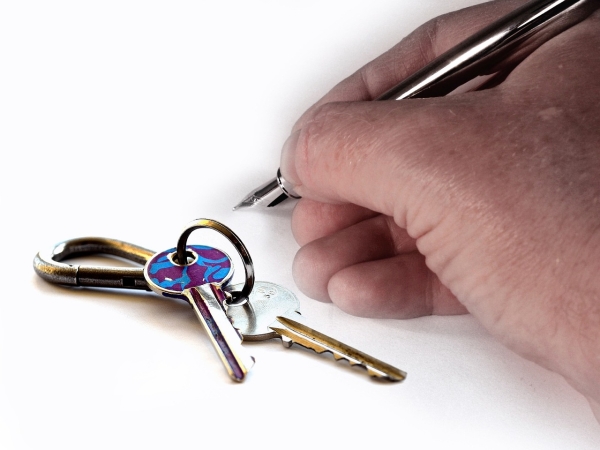
Renting and letting – what landlords need to know
30/01/23
It’s important for landlords to be aware of their obligations to tenants. Legislation covering these areas varies between England and Wales, and there have been some major changes to legislation recently in Wales, which we’ve discussed in an earlier article here. As a cross-border business, we have to be aware of both sides of the legislation and keep informed of any developments by both the English and Welsh governments. In this overview, we’ll give you some pointers towards the kinds of issues that need to be borne in mind when letting and renting accommodation. These can include everything, from fire precautions to pet clauses.
Safety and maintenance
The safety of tenants should be the primary concern of a landlord. This should be acknowledged in all aspects of their relationship – from the trust between parties, to the responsibility and care taken with the property.
There are several essential inspections, certificates and other checks that need to be carried out, to ensure the property – be it a flat or house – is fit for habitation. You must mitigate any possible dangers to the inhabitants and any aspects that become unsafe should be addressed quickly. A handy tool is the government's ‘Housing Health and Safety Rating System’ (HHSRS) which can help you assess the safety of a property in detail. It can be found here.
The singularly most important aspect of renting out a property is how suitable it is for human habitation. It must be a safe environment to live in and remain in that condition throughout the tenancy. Basic maintenance and upkeep are essential too. In fact in Wales, landlords can apply for a loan from the government to prepare a property to be fit to let. If an issue arises at the property, there are certain circumstances where the landlord won't be responsible for rectifying the issue – such as if the tenant has caused it themselves. If that’s the case, it will be the tenant’s responsibility to fix and pay for the repair.
Regular inspections
Gas and fire safety is also a major issue with rental properties. The ‘Gas Safety (Installation and Use) Regulations 1998 in England, Scotland, and Wales’ outlines that landlords need to carry out safety checks on gas appliances every year – exactly as you would expect to do on your own property, if you were the owner. The same goes for fire safety. Any alarms and fire precautions should be regularly maintained and checked for battery life, etc.
There should be a minimum of one smoke alarm for each floor of the property. There should also be a carbon monoxide detector installed in any room with a solid fuel burning appliance in it, such as a range cooker or fireplace. Fire doors should also be fitted where required and some ‘public space’ doors, such as corridors and staircases, should be self-closing. In larger buildings, fire escapes and fire drill data will also need to be visible. In some instances, fire extinguishers may also need to be present. There’s much more information on the Fire Safety Act 2021 here.
Duties of care
Landlords should aim to make their properties as energy-efficient as possible. This is being encouraged by the government and legislation is being fine-tuned all the time. For new-builds this is affecting properties at the design stage, but older properties can be improved considerably too.
The Domestic Minimum Energy Efficiency Standard (MEES) Regulations have applied to most domestic private rented properties since April 2020 in England and Wales. They are designed to ensure that rented properties have a minimum Energy Performance Certificate rating of E. In September 2020, the government issued a consultation on proposals for an estimated 2.8 million privately rented homes to meet a minimum energy performance standard of EPC Band C by 2028, where practical, cost effective and affordable.
All tenancy agreements should cover all aspects of a rental property, its contents and who (or what) lives there. This means there could be pet clauses, allowing tenants to keep animals at the house. Any damage done by a pet (or anyone else) to the property would be covered for the landlord by ‘Deposit protection’. For each tenancy, the landlord should receive a deposit, which is an assurance that any damage to the property will be covered.
We’ll be looking in more detail at specific aspects of letting and renting in future blogs. In the meantime, if you have any queries about these issues at your property, and you would like to chat to a member of the estate management team, then please get in touch.





